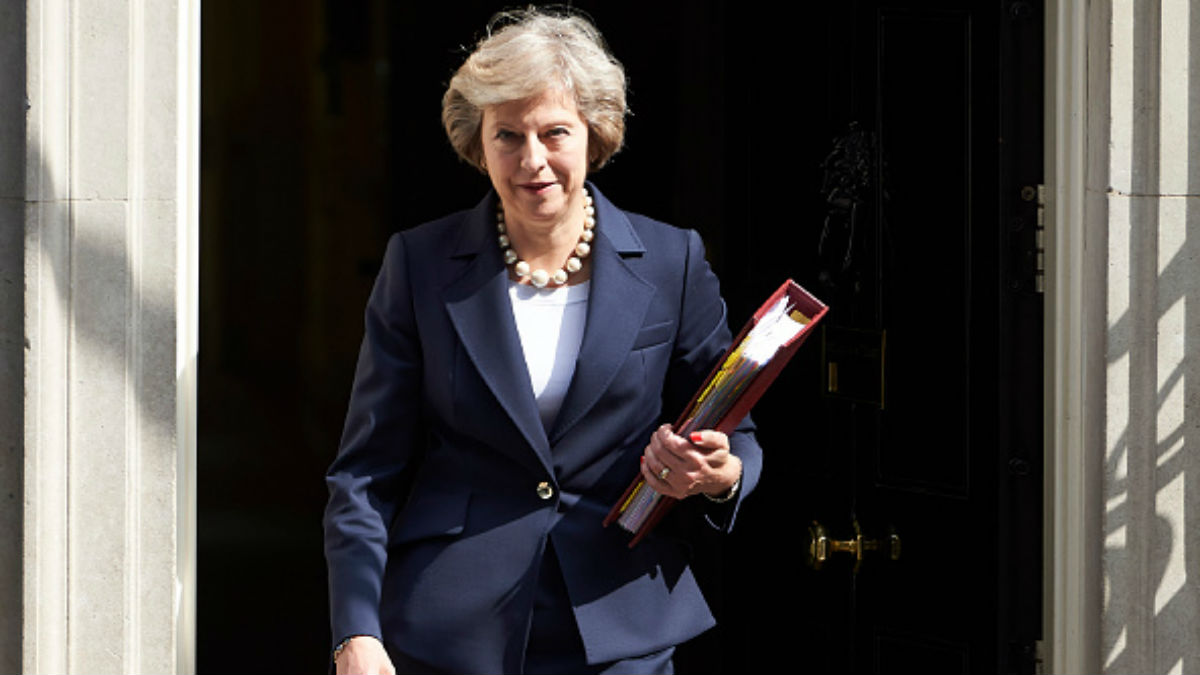Calls for Theresa May to stop Companies House plan to delete records
Destruction of millions of records 'would only serve to protect criminals', says Labour's Tom Watson

A free daily email with the biggest news stories of the day – and the best features from TheWeek.com
You are now subscribed
Your newsletter sign-up was successful
The Prime Minister is facing pressure to block a mass deletion of publicly available data held by Companies House.
In its annual results this week, Companies House, an executive agency of the government that reports into the business department, revealed it was mulling over plans to cut the minimum term it holds information on failed companies to just six years, a reduction of 14 years.
The move would see "millions of corporate records deleted", says the Financial Times.
The Week
Escape your echo chamber. Get the facts behind the news, plus analysis from multiple perspectives.

Sign up for The Week's Free Newsletters
From our morning news briefing to a weekly Good News Newsletter, get the best of The Week delivered directly to your inbox.
From our morning news briefing to a weekly Good News Newsletter, get the best of The Week delivered directly to your inbox.
In its defence, Companies House cited its move to make all of its data available free of charge in 2014 - the same year a "right to be forgotten" ruling gave individuals the power to demand search engines block past negative publicity.
"Individuals and their reputation management firms have contacted Companies House claiming that its retention of records revealing an association with struck-off companies is personally damaging and a breach of data protection laws," says The Times.
The proposals have prompted unanimous condemnation from business commentators, campaigners and even, says the Times, the Serious Fraud Office and National Crime Agency.
There is concern that such a shallow history of information will hinder efforts to investigate past wrongdoing, including fraud, and make it harder for businesses to undertake due diligence on would-be associates or senior employees.
A free daily email with the biggest news stories of the day – and the best features from TheWeek.com
A cull of data older than six years would, for example, obscure information about former BHS owner Dominic Chappell: by next month, two of his past business failures would be hidden.
"Under the mooted proposals… a businessman like Mr Chappell could reinvent his business acumen several times over during the length of a standard career," says Ashley Armstrong in the Daily Telegraph.
Deputy Labour leader Tom Watson wrote to the Prime Minister to say the change would "only serve to protect criminals who seek to hide their past… misdeeds".
A spokesman for the business department said it is "not unusual for public bodies to review their data handling practices to ensure they comply with data protection law", but that a public consultation would be held before any decision is made.
-
 James Van Der Beek obituary: fresh-faced Dawson’s Creek star
James Van Der Beek obituary: fresh-faced Dawson’s Creek starIn The Spotlight Van Der Beek fronted one of the most successful teen dramas of the 90s – but his Dawson fame proved a double-edged sword
-
 Is Andrew’s arrest the end for the monarchy?
Is Andrew’s arrest the end for the monarchy?Today's Big Question The King has distanced the Royal Family from his disgraced brother but a ‘fit of revolutionary disgust’ could still wipe them out
-
 Quiz of The Week: 14 – 20 February
Quiz of The Week: 14 – 20 FebruaryQuiz Have you been paying attention to The Week’s news?
-
 Labour shortages: the ‘most urgent problem’ facing the UK economy right now
Labour shortages: the ‘most urgent problem’ facing the UK economy right nowSpeed Read Britain is currently in the grip of an ‘employment crisis’
-
 Will the energy war hurt Europe more than Russia?
Will the energy war hurt Europe more than Russia?Speed Read European Commission proposes a total ban on Russian oil
-
 Will Elon Musk manage to take over Twitter?
Will Elon Musk manage to take over Twitter?Speed Read The world’s richest man has launched a hostile takeover bid worth $43bn
-
 Shoppers urged not to buy into dodgy Black Friday deals
Shoppers urged not to buy into dodgy Black Friday dealsSpeed Read Consumer watchdog says better prices can be had on most of the so-called bargain offers
-
 Ryanair: readying for departure from London
Ryanair: readying for departure from LondonSpeed Read Plans to delist Ryanair from the London Stock Exchange could spell ‘another blow’ to the ‘dwindling’ London market
-
 Out of fashion: Asos ‘curse’ has struck again
Out of fashion: Asos ‘curse’ has struck againSpeed Read Share price tumbles following the departure of CEO Nick Beighton
-
 Universal Music’s blockbuster listing: don’t stop me now…
Universal Music’s blockbuster listing: don’t stop me now…Speed Read Investors are betting heavily that the ‘boom in music streaming’, which has transformed Universal’s fortunes, ‘still has a long way to go’
-
 EasyJet/Wizz: battle for air supremacy
EasyJet/Wizz: battle for air supremacySpeed Read ‘Wizz’s cheeky takeover bid will have come as a blow to the corporate ego’